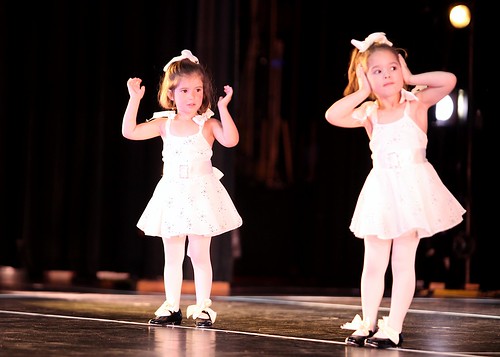Vygotsky's concept of the Zone of Proximal development is a powerful one when it comes to thinking about how people learn. The ZPD acknowledges that we learn differently - and maybe we are capable of learning more and achieving more - when we learn together. The secret is to coordinate effort with a more capable peer in the learning environment; this is the process widely known as "scaffolding." It's how social beings build knowledge, confirm hunches, course-correct when trying out new procedures, etc.
But it is also a fairly innocuous and mundane process at the operational level. And I think many who talk about the ZPD and peer scaffolding tend to overthink it. So let me give you what I consider to be a straightforward example that puts things in perspective.
 |
| Used by permission of Flickr user Travis_Warren123 |
That little peek - that's a move made by one of the children to coordinate with a more capable peer. That more capable peer isn't permanently ahead of her, developmentally, nor is she necessarily a mentor. She's engaged - for the moment - in the same activity at the same time and under the same conditions. But she's been on the stage before and maybe has a bit more confidence in the routine. She'll do. And, along with the other veterans, they make a robust ZPD in which all the dancers can learn what it is like to perform in front of a real audience.
How do you build in opportunities for learners to be the social creatures they are and to engage in peer scaffolding in online & hybrid learning? Do you sense the ZPD operating in our AL881 group?
Bill, I have been thinking how your post relates to my frustrations with blogger the
ReplyDeletefirst week of the semester and how peer scaffolding has helped me try to be at per with other 881 folks.
Having Michael and Shari at the Writing center (physical space) and watching their "steps" as they posted stuff, uploaded images helped me figure out how to do things myself.Sharing my frustrations with you f2f and learning by watching you try new ways to figure out the problem helped a lot. The questions is, what if we just interacting online? Would the learning have been the same? Hybrid-which includes physical, invites the use of an additional sense(s) like sight. "Seeing" how the technology works meant everything.